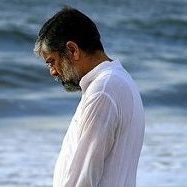New Year’s Renewal: Can You Recreate Yourself? …Should You?

We have just begin the New Year, a time associated with renewal and often with a subtle message of the need to “recreate yourself”. For what are we actually yearning?

Re-Creating Me… Take One! (Photo: Eelke)
At New Year’s we often desire to bring things into our lives that have a greater sense of reality, meaning and authenticity. Perhaps we make New Year’s resolutions: to lose weight, to quite smoking, to travel more. These urges stem from awareness of the passage of time, and a sense that we want the time to count, to get more from our lives than perhaps we’ve actually been getting. What, concretely, can we do with these yearnings?
New Year’s and Renewal
Jungian analyst and /a-midlife-transition D. Stephenson Bond stresses that marking the New Year fundamentally involves us with the “archetype of renewal”. This ancient theme of renewal was present in New Year’s celebrations in ancient Sumer as long ago as 3500 B.C.E. Sumerian New Year concerned the renewal of the King, who was seen as the embodiment of consciousness and cosmic order for the society, and the rites were called Akitu, meaning “power making the world live again”.
New Year’s, touches our own deep yearning for renewal. As Stephenson puts it,
Renewal is a theme that expresses itself in every culture, every individual life, every analysis…. There are times at life’s deepest reach when the guiding principles that once made sense of the world seem to falter.
At New Year’s, we may intuit that “guiding principles” that once made our lives coherent and meaningful, and that gave us forward direction are faltering. We need somehow to move forward on our journey towards wholeness. But how?
Re-Inventing Ourselves?
Our current culture is full of yearning for deep and fundamental renewal. One recurrent phrase carrying that kind of meaning is “reinventing oneself“. Even popular psychology magazines carry prominent articles entitled, “10 Rules for Reinventing Yourself”. That sounds inviting, but what are we to make of this idea of “self-reinvention”?
Depth case studies would tend to see such language as potentially rooted in failure to accept ourselves for who we most fundamentally are. One of the things which can trap people in endlessly repeated patterns of pain in their lives is the inability to accept who they really are in a genuinely compassionate way.
Such patterns get lived out again and again. We may know individuals who goes from one painful romantic relationship to another, attracted to hurtful, abusive and even psychopathic partners because they cannot accept and value themselves. Often, there is an unconscious part of themselves that feels that a difficult and even punishing partner is all they can attract, or is what they deserve, or is somehow their fate.
Often, if the individual can get to a place of genuine, self-compassionate acceptance, this painful and destructive dynamic can change. But if “re-inventing oneself”, means that by massive effort of will, the individual is going to cut through very long held patterns in his or her life, and somehow push that life onto another track — this may just be another form of violence to the self, of turning anger inwards and expressing self-hatred. It may even be associated with an unconscious and self-attacking fantasy of “being someone else”.
To find true meaning in our individual lives we need more than this. Depth case studies would emphasize our need to seek in the direction of C.G. Jung’s observation, using the gender conventions of his day, that,
“Every individual has the law of his life inborn in him.”
The Journey to Who We Are
How do we get to this unique, inborn ” law of life” within? The essence of this journey is through a compassionate exploration and listening to our own being. This involves a clear-sighted examination of our lives and our journey, together with an attempt to listen to and be aware of the unexplored aspects of what Jung called the Undiscovered Self. This occurs through dreams, perhaps journalling, artwork or other forms of self-expression, and through noticing the many unexpected ways in which who we truly are emerges in our daily lives.
Jungian /a-midlife-transition serves the deep human desire for renewal. It assists the individual in discovering meaning, direction and vitality through enabling the individual to connect with his or her most fundamentally identity, and finding viable ways to live out that reality.
Brian Collinson, Registered Psychotherapist & Jungian Psychoanalyst
[cta]

